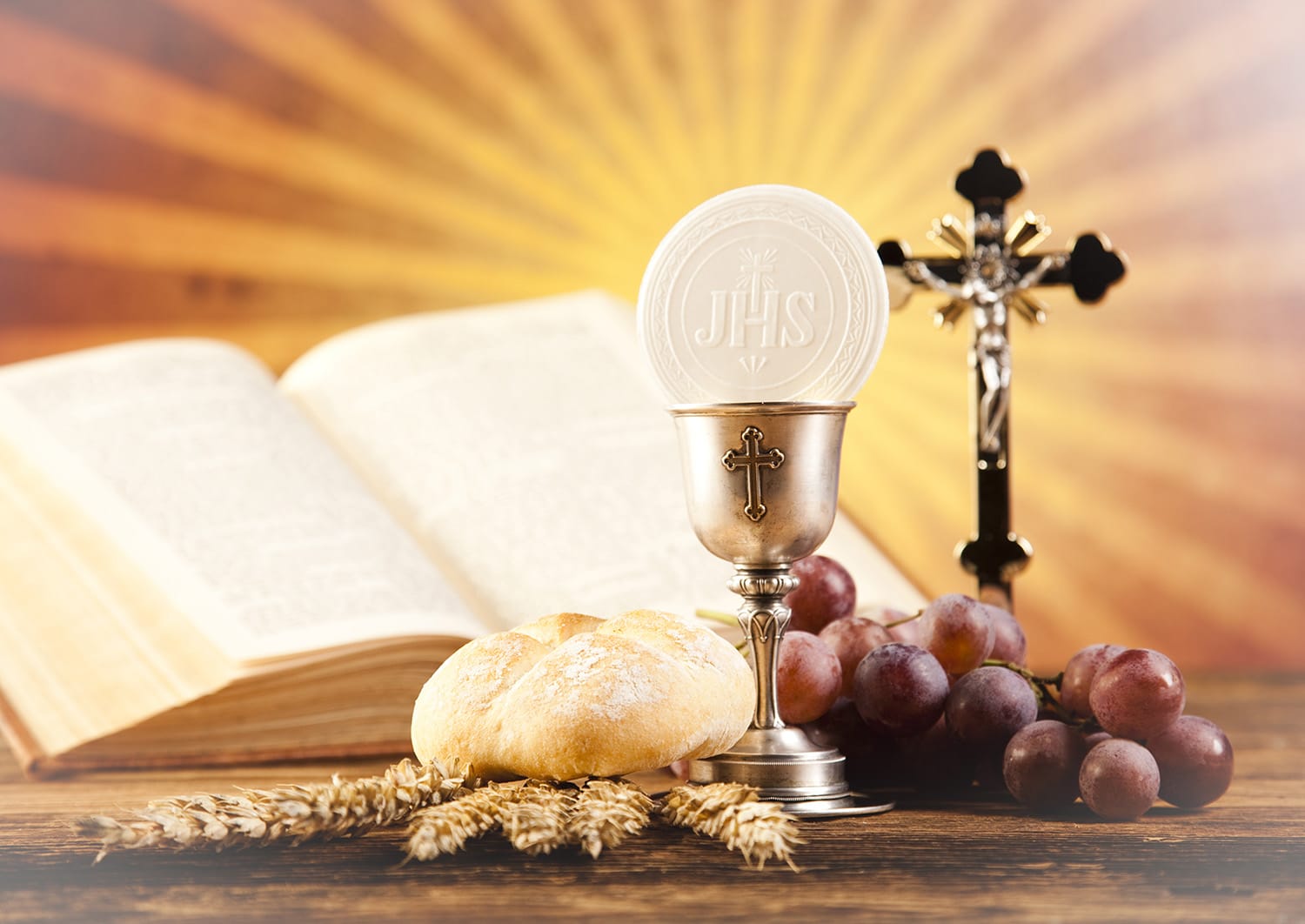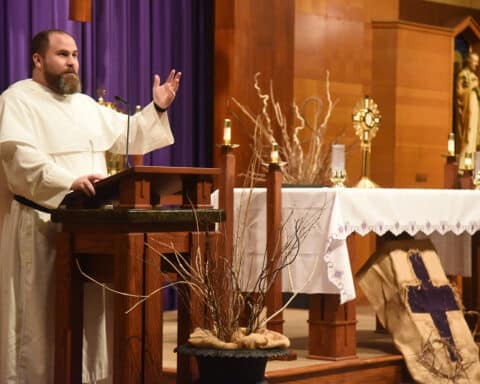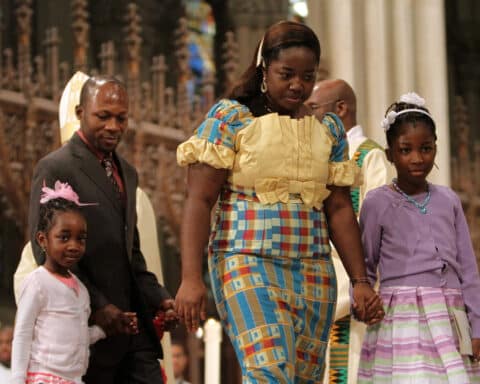“The one who sat on the throne said, ‘Behold, I make all things new'” (Rev 21:5).
In the Divine Liturgy of St. John Chrysostom, just before the distribution of holy Communion, the deacon intones, “Approach with the fear of God and with faith!” And the congregation replies, “Blessed is he who comes in the name of the Lord! The Lord is God and has revealed himself to us.”
The congregation’s response has at least two meanings. The first, of course, is that Jesus Christ is God and has revealed himself to us by becoming man. The second should be obvious from the context: That which we are about to receive is the body, blood, soul and divinity of Christ, and we know this because Christ himself has revealed this truth to us.
That Christ gives himself to us every day under the humble appearance of bread and wine is as great a mystery as the Incarnation itself, in which the Son of God humbled himself to share in our humanity. Indeed, in one sense, it may be a greater mystery. We know why God sent his only-begotten Son into our world: because he loves us and desires to save us from the sin of our first parents and our personal sins. Why Christ chose to continue, until the end of time, to re-present his sacrifice on the cross in the form of bread and wine, however, is something about which we can only speculate. Ultimately, we only know that he did, and that he asked us to remember his sacrifice this way until he comes again.
Claiming the new worldview
Yet even if we cannot know why Christ established this sacred banquet as the sacrament of his death and resurrection, we can know something about the effect of his having done so. I am not referring here simply to the graces of the sacrament, or even to its ability to make Christ’s sacrifice truly present to us again at every Mass and Divine Liturgy. Rather, I am referring to what we might call the Eucharistic worldview — not only a way of looking at the sacramental species and seeing not the forms of bread and wine but the true body and blood, soul and divinity of Christ, but also a way of looking at the rest of the world that reveals God’s presence and power in every moment of our lives.
If, to eyes enlightened by grace, the humble forms of bread and wine can reveal the fullness of Christ’s humanity and divinity, what might the rest of creation reveal to those same eyes? “The heavens declare the glory of God,” the psalmist tells us, “and the firmament shows forth the work of his hands.” All of creation has a story to tell, and at one time our ancestors in the Faith listened attentively. The language of a world animated by the power and glory of God, a language that so suffuses the Psalms, was seen by them not as mere metaphor but as a living reality. In the words of St. Patrick, in his famous “Lorica” (or “Breastplate”), the “light of Sun, brilliance of Moon, splendor of fire, speed of lightning, swiftness of wind, depth of sea, stability of earth, firmness of rock” all speak eloquently of the “strength of heaven,” a reality that we cannot see directly but can sense with spiritual eyes made strong by a faith fed through the sacrament of the Eucharist.
For five centuries or more now, our spiritual senses have been increasingly dulled by an epistemology — a theory of knowledge — that declares as a matter of fact (and not mere speculation) that “what you see is what you get”; that everything is merely what it appears to be, and nothing more. And yet we know that, in the case of the Eucharist, this epistemology fails us, which is why St. Thomas Aquinas enjoins us, “what our senses fail to fathom / let us grasp through faith’s consent.”
A Eucharistic worldview sees beyond the surface, beyond mere appearance, to the true substance of the Eucharistic species. We desperately need this same worldview in every aspect of our lives. The success of the National Eucharistic Revival in which we are currently engaged will be measured not merely in what Catholics think about the Church’s teaching on the Eucharist, but even more so in how a revivified experience of the Eucharist leads each of us to see past mere appearances to the world beyond, in which the one who sits on the throne makes all things new.





